
ComCERT, a leading provider of cybersecurity services in Poland, has a team of certified experts and a wide portfolio of certifications that confirm the quality and effectiveness of our operations.
We hold certifications at both the organizational and individual levels, ensuring compliance with international standards and demonstrating our capability to execute complex IT security projects.

The certificate addresses international standards for information security management, and validates skills in implementing and auditing information security management systems (ISMS). It covers practices in security policies, risk management, data protection and regulatory compliance. It is suitable for both implementers and auditors.
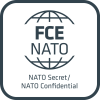
A document certifying ComCERT’s ability to ensure the protection of classified information from unauthorized disclosure in connection with the execution of contracts or tasks to the level of NATO Secret and NATO Confidential. It is issued by the Internal Security Agency (ABW)

Document confirming ComCERT’s ability to ensure protection of classified information from unauthorized disclosure in connection with the performance of contracts or tasks to the level of UE/EU Secret, UE/EU Confidential

An international standard that aims to ensure that organizations are able to continue operations in the event of incidents that disrupt normal operations. It focuses on planning, implementing and maintaining a business continuity management system. It helps organizations identify potential threats and their impact on business operations, enabling quick and effective responses. As a result, operational downtime is minimized and business processes are protected from disruption.

Receiving this authorization confirms the high quality of ComCERT’s incident response and IT security management activities. It allows cooperation with global CERT/CSIRT networks

Membership in FIRST confirms that ComCERT meets the highest standards in security incident management and international cooperation. FIRST promotes best practices, supports the development of tools and methods, and facilitates rapid response to global threats.
TF-CSIRT is an initiative that brings together CSIRTs (Computer Security Incident Response Teams) in Europe, supporting their collaboration and development. Trusted Introducer is an accreditation program that enables CSIRT teams to receive formal recognition for their competence and incident response capabilities.

This certificate confirms practical skills in identifying security vulnerabilities and conducting penetration tests. The CEH certification covers knowledge of techniques and tools used by cybercriminals, as well as effective methods of protecting against cyber threats.
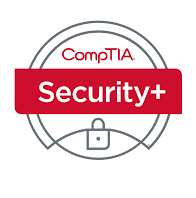
CompTIA Security+ is an international certification that confirms knowledge and skills in the field of IT security. It covers system security, network infrastructure, cryptography, assessments, and audits.
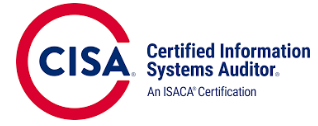
The CISA (Certified Information Systems Auditor) certification confirms knowledge and skills in auditing, controlling, and assessing information systems.
It covers five key domains: information systems auditing processes, IT governance and management, protection of information assets, information systems lifecycle management, and business continuity and disaster recovery planning.
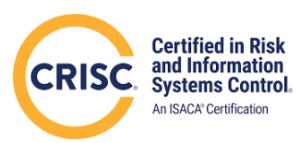
The CRISC (Certified in Risk and Information Systems Control) certification confirms specialized knowledge and skills in IT risk management and information systems control. The certification covers key areas such as identifying and assessing IT risks, implementing appropriate control measures, monitoring threats and supporting organizations in building resilience against incidents and ensuring compliance with regulatory requirements.
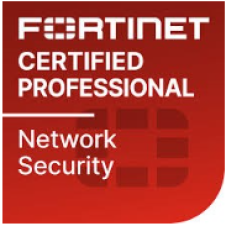
Implementation and management of Fortinet network security solutions.
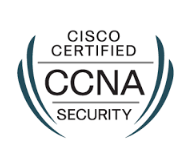
The CCNA Security certification covers knowledge and practical skills in designing, configuring, and managing network infrastructure, managing security policies and implementing network security solutions.

The ITIL certification confirms knowledge of best practices in IT Service Management (ITSM). It covers the principles of designing, implementing, and managing IT processes, incident management, change management, business continuity and delivering IT services in line with business and user expectations.

SIM3 is an international model for assessing the operational maturity of cybersecurity teams (SOC, CSIRT). The assessment focuses on four key areas: Organisation, People, Tools and Processes. ComCERT’s expertise in SIM3 enables us to conduct audits, self-assessments, and projects supporting the development and professionalisation of teams responsible for security incident management.

The CIHE (Certified Incident Handling Engineer) certification confirms knowledge and practical skills in IT incident handling and response. It covers the entire incident handling lifecycle: from identifying threats and vulnerabilities, preparing the organisation, and first response actions, through containment, eradication, recovery, and post-incident follow-up activities.
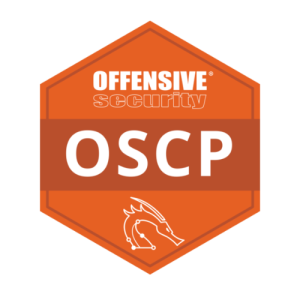
The OSCP (Offensive Security Certified Professional) certification confirms advanced skills in penetration testing and offensive security techniques. OSCP competencies include identifying and exploiting vulnerabilities, bypassing security controls, privilege escalation, analysing Windows and Linux environments, and preparing detailed reports with recommendations for remediation.
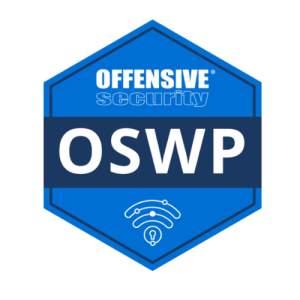
The OSWP (Offensive Security Wireless Professional) certification confirms specialized knowledge and skills in wireless network security testing. OSWP competencies include identifying Wi-Fi vulnerabilities, breaking wireless encryption protocols, capturing and analysing wireless traffic, and providing recommendations for securing wireless environments.
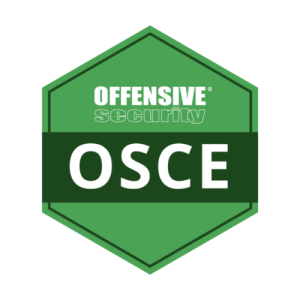
The OSCE (Offensive Security Certified Expert) certification confirms expert-level skills in penetration testing, exploit development, and advanced attack techniques. OSCE competencies include security bypass techniques, custom exploit creation, client-side and server-side attacks, and performing advanced security testing in highly secured environments.
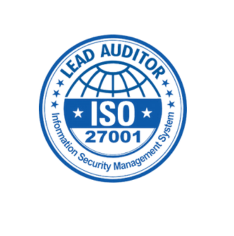
The ISO/IEC 27001:2022 Lead Auditor certification confirms competencies in planning, conducting, and evaluating audits of Information Security Management Systems (ISMS). It enables the verification of compliance with the standard’s requirements and the effectiveness of implemented security controls.
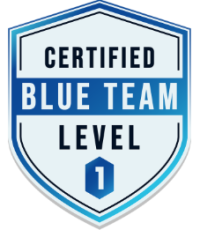
The Blue Team Level 1 (BTL1) certification confirms practical skills in detecting, analysing, and responding to cybersecurity incidents. It covers working with logs, threat analysis, anomaly detection, and essential techniques for defending and monitoring IT environments.
